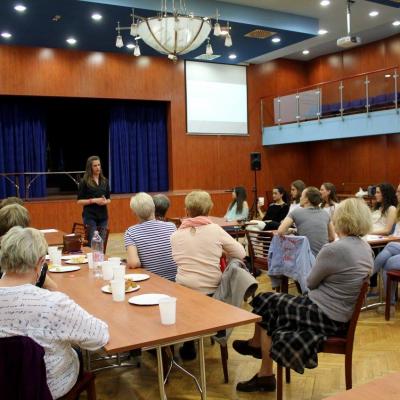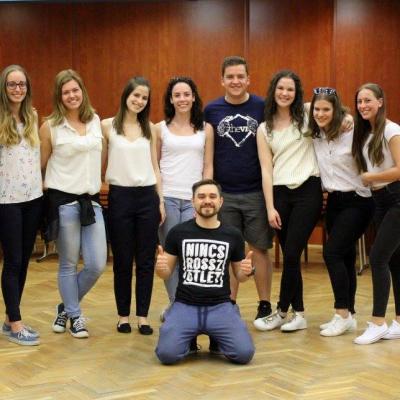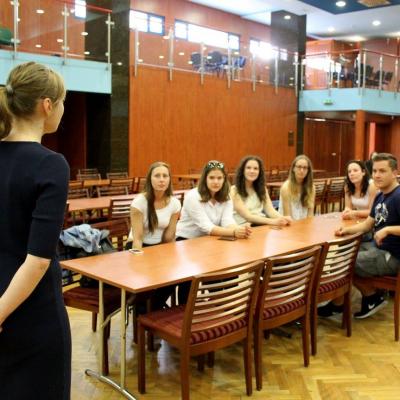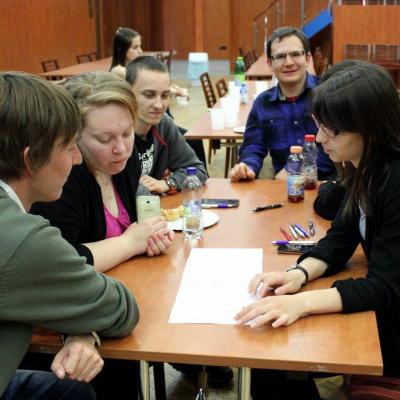How to play?:
The game is based on popular online multiplayer video games that either have a strong sexuality in their imagery or use explicitly gender-neutral characters (Fortnite, Overwatch, World of Warcraft, League of Legends, Among Us, Fall Guys). These video games are not only popular, but can be examined in relation to gender on several levels: they feature idealised male characters, over-sexualised female characters, masculine and muscular female characters, and gender-neutral creatures. The online sensitivity game is based on the characters of these popular video games, their background stories and the plot of the games, and we developed our own questions about the community-forming and civilising effects of video games as part of our culture, whether they shape social stereotypes, and how they affect personal development, and what knowledge and skills they develop or re-develop. In the online interface, we tried to create a visual world that provided clearly recognisable characters, skins and avatars for both those with and without background knowledge, and a well-defined reference point for questions on identification and mating expectations. The rules and the course of the game were designed to reveal what shapes the individual’s relationship with society, his social interactions, strategic thinking, cooperative skills and rule-following behaviour, when considering the choices and the consequences to be taken into account.
Skills improved
Complex approach, strategic thinking, critical thinking, results-oriented, understand the details and the big picture, cooperation, helping others, following rules, acceptance and appreciation of diversity.
Background
The objective of our research team of four was to develop an immersive game that explores the social and societal effects of multiplayer video games, in line with the profile of CASSI. The topic was divided into three sub-units: the impact on the formation of body image influencing self-image and mate choice (1) in the approach of women and (2) in the approach of men, and (3) the influence of players’ cooperation strategies. A further objective was to make the game playable online, as the host event at which we first presented it was the International Week at HAN University in the Netherlands, and we were unable to attend in person due to the Covid-19 epidemic. So we had to try a new platform for our social awareness game. We did a pilot test before going live. We selected eight testers to ensure a broad age range, a good boy-girl ratio and a good gamer-non-gamer ratio. In the first week of February 2021, our game was presented at the HAN, where a total of 31 participants took part. The students were mostly girls, but also included students who identified themselves as gamers and non-gamers.
The creators
Inez Zsófia Koller is the head teacher of CASSI, and she is experimenting with more and more new methodological frameworks in the field of social sensitisation. Fruzsina Csébi and Kristóf Marcell Szabó, currently in their fourth year of a Master’s degree in English and Ethics. They take part in many programmes organised by CASSI. István Ábrahám Bálint has been co-president of CASSI since 2021 and has been involved in numerous graphic design and content development projects that have contributed to CASSI’s visibility and recognition. He has a Bachelor’s degree in library science and is currently studying commerce and marketing at BsC level.








